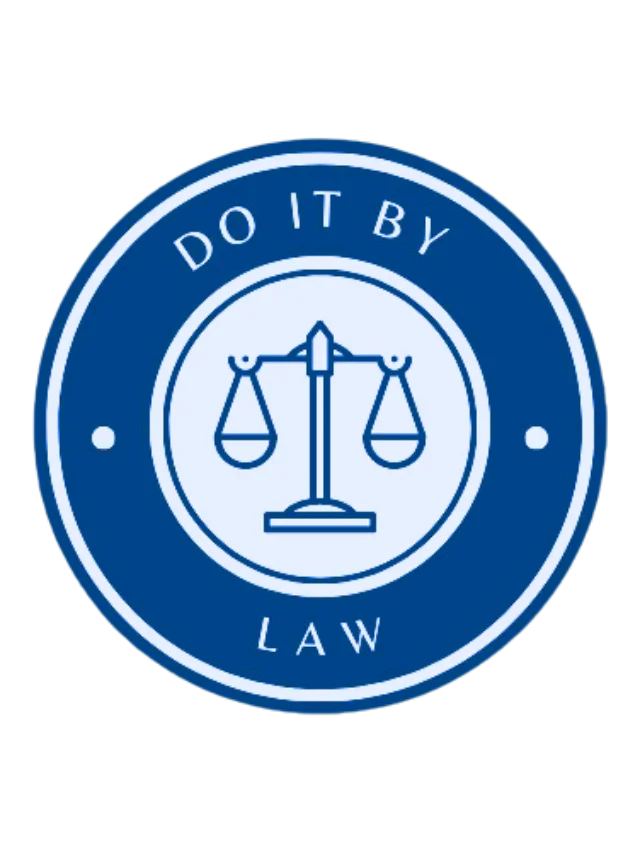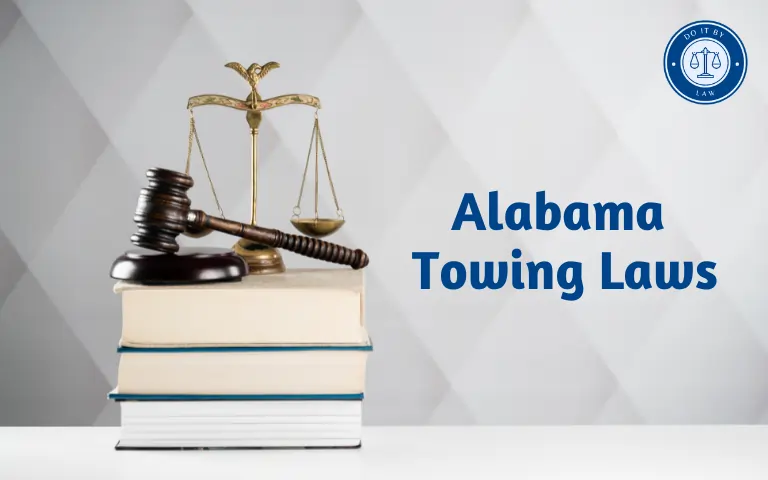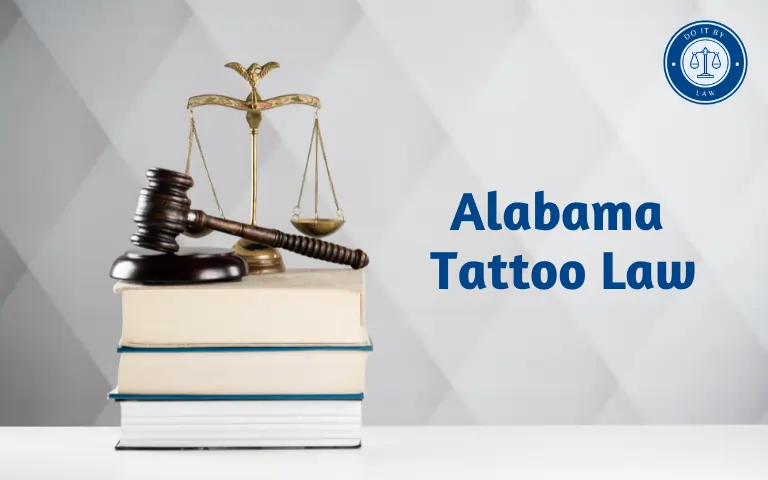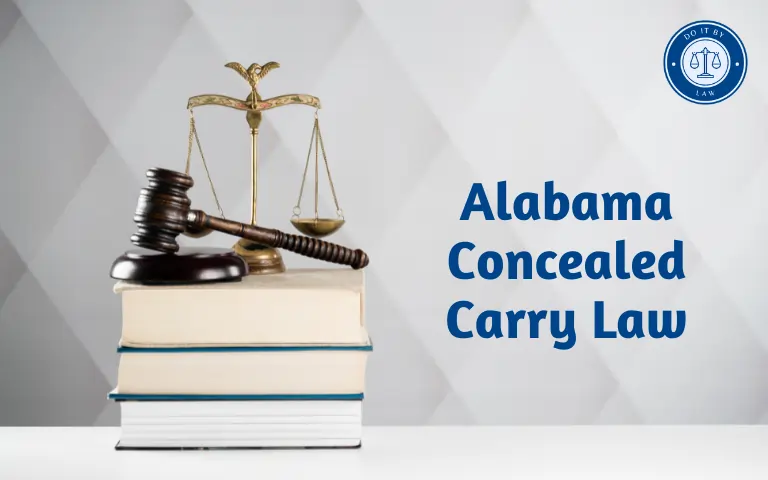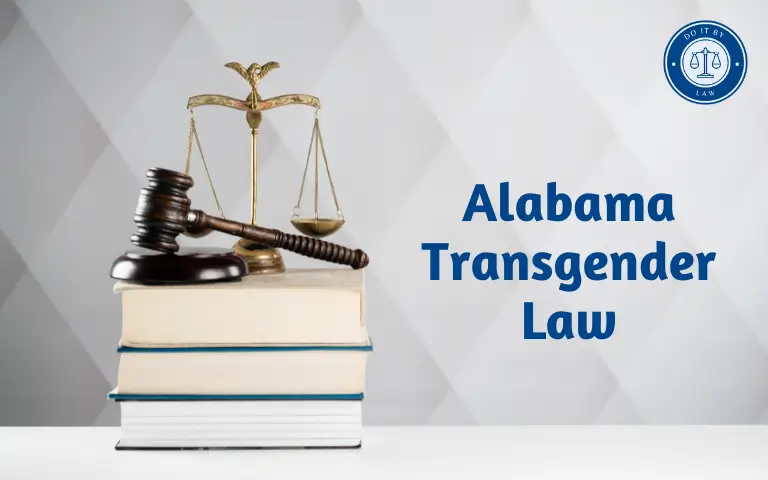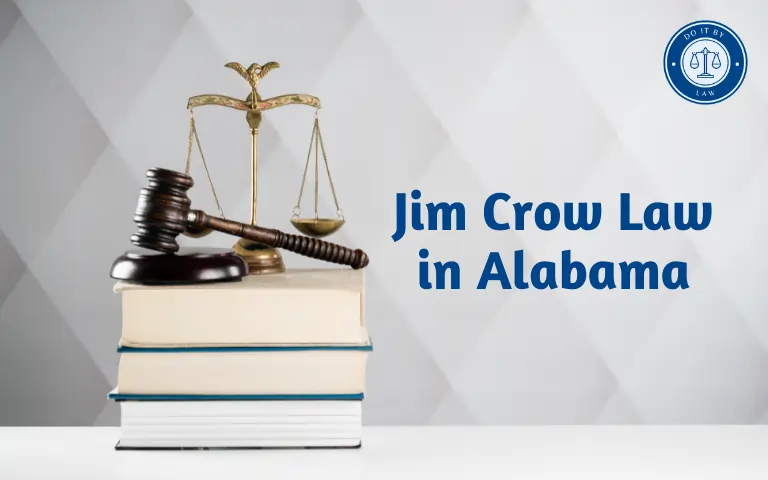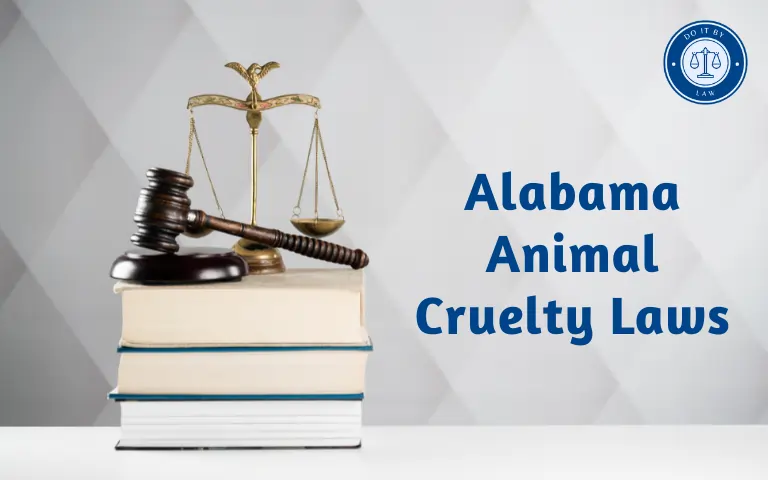Alabama Towing Laws: Your Guide to Vehicle, Trailer, and Property Towing Rules
Navigating a towing situation in Alabama can be stressful, especially if you’re unaware of your rights. Whether it’s a car towed from private property, a trailer issue, or concerns about predatory towing, understanding Alabama towing laws is crucial.
Are you facing unexpected tow fees or wondering about vehicle towing laws in Alabama? Our guide breaks down the rules, from Alabama private property towing laws to trailer towing laws, ensuring you’re informed and protected.
Learn how to avoid unfair practices and what to do if a towing company withholds your personal property. Know more about your consumer rights and take control today!
Overview of Alabama Towing Laws
Alabama towing laws regulate how vehicles, trailers, and other property can be towed, ensuring fairness for drivers, property owners, and towing companies.
| Key Aspect | Details |
|---|---|
| Purpose | Regulate towing to prevent unfair practices and ensure clarity. |
| Who Benefits | Drivers, property owners, and towing companies. |
| Consumer Rights | Right to notice, fair fees, and property recovery. |
| Key Laws | Cover private property, vehicle, and trailer towing. |
These laws protect against unfair practices like predatory towing and outline rules for private property towing, vehicle towing, and personal property recovery. Understanding these regulations helps you avoid costly fees and disputes.
Knowing Alabama vehicle towing laws is essential for drivers and property owners. For drivers, it means protecting your vehicle from wrongful tows. For property owners, it ensures compliance when removing unauthorized vehicles. Familiarity with these laws empowers you to act confidently in towing situations.
Alabama towing laws consumer rights build trust by safeguarding your interests. You have the right to clear notification, fair fees, and access to your personal property after a tow. These protections help you challenge unfair practices and recover your vehicle stress-free.
CTA: Facing a tow? Know more about your rights and stay protected!
Who Do Alabama Towing Laws Apply To?
If you tow anything in Alabama — whether it’s a boat, trailer, RV, or even a car on a dolly — you’re subject to Alabama towing laws. These rules apply to both private drivers and commercial operators, but the details can vary depending on what you’re towing and why.
| Group | Examples | Key Laws |
|---|---|---|
| Private Drivers | Cars, trucks, RVs, boats, tow dollies | Weight limits, lights, brakes, max length, secure attachments |
| Commercial Drivers | Tow trucks, freight haulers, equipment haulers | CDL, DOT inspections, insurance, federal & state regulations |
| Property Owners & Tow Companies | Apartments, malls, private businesses | Signage, authorization, police notification, anti-predatory rules |
Private Drivers
Most Alabama towing laws apply to private individuals using their own vehicles. This includes:
| Who? | Examples |
|---|---|
| Private drivers | Pickup trucks, SUVs, family RV setups |
| Towed loads | Boats, campers, small equipment trailers |
- Personal trailers (utility trailers, boat trailers, car haulers)
- Recreational vehicles (RVs) and campers
- Tow dollies when hauling another car
Private drivers must follow laws on weight limits, braking systems, lighting requirements, and maximum length/width.
Commercial Drivers
Commercial drivers — like tow truck operators, delivery drivers with trailers, or equipment haulers — must follow additional federal and state regulations.
| Who? | Examples |
|---|---|
| Commercial drivers | Tow trucks, freight haulers, equipment rigs |
| Regulations | CDL rules, DOT inspections, weight limits |
Key points:
- Must have a commercial driver’s license (CDL) if required by vehicle weight.
- Must follow Alabama DOT and Federal Motor Carrier Safety Administration (FMCSA) rules.
- Subject to stricter rules on insurance, vehicle inspections, and load securement.
Towing Companies and Private Property Owners
When towing from private property (like apartment complexes or shopping centers), both the property owner and towing company must follow Alabama’s private property towing laws.
- Proper signage and authorization are required.
- Tow companies must notify local police after a tow.
- There are protections against predatory towing practices.
If you’d like, I can also help write a quick checklist for drivers to follow Alabama towing rules — just say the word! 🚗✅
Alabama Private Property Towing Laws
If you park in the wrong spot in Alabama — especially on private property like apartments or businesses — you could come back to find your vehicle gone. Here’s what you need to know about Alabama private property towing laws, including signage rules, notifications, and protections against predatory towing.
Rules for Towing from Private Property
In Alabama, property owners (or their agents) can tow unauthorized vehicles from private lots, but they must follow certain rules:
- Proper authorization: Only the property owner, a tenant, or a property manager can authorize a tow.
- Legitimate reason: Common reasons include illegal parking, blocking driveways, parking in fire lanes, or violating posted rules.
- Licensed towing companies: Only licensed and insured towing companies can remove vehicles.
| Towing Rule | Details |
|---|---|
| Who can authorize | Property owner, tenant, or authorized agent |
| When allowed | Illegally parked, blocking access, violating signs |
| Who can tow | Licensed and insured towing companies |
Requirements for Signage and Notification
Under Alabama rental property towing laws, certain signage and notice requirements apply:
- Visible signage: Private lots must display clear signs at entrances, stating parking rules and that unauthorized vehicles will be towed.
- Sign details: Signs should include the name and phone number of the towing company and the location where vehicles will be stored.
- Notification after towing: The tow company must notify the local police department as soon as the vehicle is removed.
| Requirement | Details |
|---|---|
| Signage | Clear signs at entrances with towing info |
| Towing company info | Name, phone, storage location on signs |
| Police notification | Tow company must report to police immediately after the tow |
Protections Against Predatory Towing
Alabama has measures to protect you from predatory towing practices:
✅ No kickbacks: It’s illegal for tow companies to pay property owners for towing rights.
✅ Reasonable fees: Towing and storage fees must be fair and in line with local regulations.
✅ Release of vehicle: You have the right to recover your vehicle by paying the fees — the tow company cannot refuse to release it once paid.
✅ Police involvement: Always check with local police if your car was towed, as they keep records of towed vehicles.
Need Help? Learn How to Dispute a Tow
If you think your vehicle was towed unfairly, don’t panic — you have options. Check out our full guide on How to Dispute a Tow in Alabama to understand your rights and next steps.
Alabama Car and Vehicle Towing Laws
Hit the road with confidence by understanding Alabama car towing laws and vehicle towing laws Alabama—from general rules to special cases like time notices and burned vehicles.
Key Points from Alabama Car Towing Laws
- Authorized to Tow: Only property owners, their agents, or law enforcement can order a tow.
- Licensed Operators: All tow trucks must be licensed under Ala. Admin. Code r. 810-5-1-.207
- Fee Limits: Nonconsensual tow rates are approved annually by the Alabama Law Enforcement Agency
- Owner Access: Once a vehicle is towed by police order, the owner must be allowed to retrieve personal belongings immediately
Time Notice Requirements for Towed Vehicles
Alabama requires tow operators to alert law enforcement promptly after removing a vehicle:
Rules for Towing Burned Vehicles
Burned or severely damaged vehicles often qualify as “unclaimed” or “abandoned,” triggering special procedures:
| Situation | Rule |
|---|---|
| Abandoned on Public/Private Property | A vehicle left unattended for 48+ hours is “unclaimed” and must be reported to ALDOR within 5 calendar days (Alabama Department of Revenue). |
| Inoperable/Burned on Private Property | Considered abandoned if inoperable or damaged (e.g., burned) and stationary for 30+ days; property owner may tow after 24-hour posted notice (Justia Law). |
| Sale of Abandoned Vehicles | After a 60-day title hold and required public auction notices, vehicles may be sold as abandoned property (Alabama Department of Revenue). |
Ready to get your car back? Check out our guide on Steps to Recover a Towed Vehicle in Alabama.
Alabama Trailer Towing Laws
Whether you’re hauling a boat, an RV, or a utility trailer, it’s important to understand Alabama trailer towing laws before hitting the road. Alabama has specific rules about tow dolly use, double/triple towing, and specialty trailers.
Alabama Tow Dolly Laws
A tow dolly is commonly used to pull a second vehicle behind an RV or truck. In Alabama, the law treats dolly towing similarly to full trailer towing.
Key Rules:
- The towed vehicle must be securely attached and cannot sway or swerve.
- Safety chains and working brake lights are required.
- Braking system: If the trailer (or vehicle on dolly) exceeds 3,000 lbs, an independent braking system is required.
| Tow Dolly Requirement | Details |
|---|---|
| Safety Chains | Mandatory |
| Brake Lights | Must be functional on the towed vehicle |
| Braking System | Required if towed load exceeds 3,000 lbs |
Make sure your dolly setup meets these standards under Alabama tow dolly laws to avoid fines or safety issues.
Alabama Double Towing Laws
Double towing, also called “triple towing” in some states, involves pulling two trailers or vehicles behind a single vehicle.
In Alabama:
- Double towing is legal, but only under strict conditions.
- The total combined length of the vehicles and trailers must not exceed 65 feet.
- Safety connections and braking systems must be used for each towed unit.
| Double Towing Regulation | Details |
|---|---|
| Legal in Alabama? | ✅ Yes, under strict guidelines |
| Max Length | 65 feet (combined total) |
| Safety Requirements | Chains, lights, brakes on each trailer |
Understanding Alabama double towing laws ensures you’re both compliant and safe on highways.
Alabama Triple Towing Laws
While double towing is allowed, triple towing (towing three trailers) is not permitted for non-commercial drivers in Alabama. This law applies to private citizens using personal vehicles. Exceptions may apply to certain commercial transport vehicles, but strict permits and regulations are involved.
Alabama RV Towing Laws (and Specialty Trailers)
If you’re towing an RV, a portable cement mixer, or any specialty trailer, Alabama has a few extra rules:
| Specialty Trailer Rule | Requirement |
|---|---|
| RV Brakes | Required if RV or trailer is 3,000+ lbs |
| Max Width | 102 inches |
| Lighting | Mandatory: brake, tail, signal, and reflectors |
| Load Security | Must be tightly secured and balanced |
- Weight limits: If the trailer is over 3,000 lbs, you must use brakes and breakaway systems.
- Width limit: Trailers must not exceed 102 inches in width.
- Lighting: All trailers must have functional taillights, turn signals, and reflectors.
- Specialty loads: Equipment like portable cement mixers must be properly balanced and secured.
These are covered under Alabama RV towing laws and specialty trailer towing regulations.
Want help writing a related article on Alabama Towing Speed Limits and Safety Tips? I can draft that next!
Alabama Towing and Recovery Laws on Personal Property
If your car has been towed in Alabama, you may worry about what happens to your personal property left inside. Here’s a clear guide to your rights under Alabama towing and recovery laws — and how to get your belongings back.
Protections Against Towing Companies Keeping Personal Property
Under Alabama law, towing companies cannot keep or sell personal property from your towed vehicle to cover towing or storage costs.
✅ Personal items belong to you — things like clothes, tools, electronics, or baby seats must be returned.
✅ Exclusions: Items permanently attached to the car (like aftermarket stereos or rims) may be treated as part of the vehicle under lien rules.
✅ Storage fees apply only to the vehicle, not your personal belongings.
| Rule | What It Means |
|---|---|
| Personal property protected | Towing companies cannot sell or keep personal belongings to pay for tow/storage fees. |
| Access rights | You can retrieve personal items even if you can’t pay to release the vehicle. |
| Permanent attachments | Things bolted or wired into the car (like stereos) may be considered part of the vehicle. |
How to Reclaim Items from a Towed Vehicle
Here’s what to do if your car has been towed and you need your things:
- Contact the tow company — Ask where your car is stored and set a time to retrieve your items.
- Bring ID and proof of ownership — This can include your vehicle title, registration, or insurance card.
- Request access to personal items — Under Alabama law, they must let you get your belongings.
- Document everything — Take photos or a video when picking up your items, in case there’s a dispute.
Alabama Towing and Recovery Laws + Lien Holder Rights
Towing companies in Alabama have a lien on the vehicle for unpaid tow and storage charges — but not on personal property inside the vehicle.
| Lien Type | Covers |
|---|---|
| Alabama tow lien | Only applies to the vehicle, not to personal belongings inside. |
| Lien holder rights | The company can hold or sell the vehicle after legal notice if fees remain unpaid. |
Before a vehicle is sold under lien, Alabama law requires:
✅ Proper notice to the registered owner
✅ Public auction after waiting periods
Interlink: If your vehicle was towed, learn about the Steps to Recover a Towed Vehicle in Alabama.
Alabama Specialty Towing Regulations
Towing boats, personal watercraft, heavy equipment, or operating a tow truck in Alabama requires strict adherence to specialty towing regulations.
These rules ensure safety, protect property, and keep you compliant. Below, we break down key regulations for boat towing, equipment towing, and tow truck operations, optimized for clarity and mobile readability.
Alabama Boat and PWC Towing Laws
Alabama boat towing laws and Alabama PWC towing laws cover watercraft like boats and personal watercraft (PWCs). Trailers must meet specific safety standards to prevent accidents and damage.
| Requirement | Details |
|---|---|
| Attachment | Marine-grade straps, transom saver |
| Lighting | Taillights, brake lights, side markers |
| Brakes | Required if over 3,000 lbs |
| Size Limits | 102 inches wide, 65 feet long |
- Secure Attachment: Use marine-grade straps and transom savers to protect the hull.
- Lighting: Trailers need functional taillights, brake lights, and side markers.
- Brakes: Required if the combined boat and trailer weight exceeds 3,000 lbs.
- Size Limits: Maximum width is 102 inches; total length, including trailer, cannot exceed 65 feet.
Towing Portable Cement Mixers and Equipment
Towing specialty equipment like portable cement mixers or generators under Alabama law for towing portable cement mixer demands careful preparation to meet safety and legal standards.
| Rule | Details |
|---|---|
| Weight Rating | Trailer rated above equipment weight |
| Tie-Downs | Chains/straps ≥ 1.5x load weight |
| Brakes & Lighting | Required if over 3,000 lbs |
| Overhang | Max 3 feet with flag |
- Weight Rating: Trailers must be rated above the equipment’s loaded weight.
- Tie-Downs: Use chains or ratchet straps rated for at least 1.5x the equipment’s weight.
- Brakes and Lighting: Required for trailers over 3,000 lbs, including full lighting systems.
- Overhang: Maximum 3 feet front or rear overhang, marked with a clearance flag.
Alabama Tow Truck and Hauler Laws
Operating a tow truck or tow hauler under Alabama tow truck laws and Alabama law to drive tow hauler truck involves specific licensing, vehicle, and insurance requirements to ensure safe and legal operations.
| Requirement | Details |
|---|---|
| CDL | Required if GVWR > 26,001 lbs |
| Operator Permit | ALEA registration |
| Inspection | Annual, covers brakes, hydraulics, lights |
| Insurance | $300,000 nonconsensual, $100,000 consensual |
- CDL Requirement: Needed if the gross vehicle weight rating (GVWR) exceeds 26,001 lbs.
- Operator Permit: Tow operators must register with the Alabama Law Enforcement Agency (ALEA).
- Vehicle Inspection: Annual checks for brakes, hydraulics, winches, and lights.
- Insurance: Minimum $300,000 liability for nonconsensual tows; $100,000 for consensual tows.
CTA: Need specialty towing? Explore our trusted services to stay compliant and safe!
Auburn, Alabama Towing & Wheel-Locking Ordinance
While Alabama state towing laws set the foundation, local governments can pass city and county ordinances that add extra rules or restrictions. Knowing these regional differences is crucial to avoid surprise fines or issues.
| Feature | City of Auburn | Lauderdale County |
|---|---|---|
| Wheel-Lock Waiting Period | 4 hours before tow | Governed by state law (no local wait period) |
| Police Notification Timing | Within 1 hour to Auburn Public Safety | “Immediately” per state code (no local addition) |
| Maximum Tow Fee (Private Property) | $125 plus $20/day storage | Set annually by ALEA (varies; no county cap) |
| Governing Ordinance | Auburn City Code, Art. XIII | Alabama state statutes & ALEA regulations |
Auburn, Alabama Towing Laws
In Auburn, Alabama, local ordinances set strict guidelines on towing:
- Wheel-Lock Waiting Period
After a wheel-lock is applied, a vehicle cannot be towed until 4 hours have passed (Municode Library). - Police Notification
The tow or wheel-lock company must report all actions to Auburn Public Safety within 1 hour of tow removal (Mcclibraryfunctions). - Fee Caps
Maximum private-property tow fee is $125, plus up to $20/day storage (https://www.wsfa.com).
Lauderdale County Towing & Storage Rules
Lauderdale County has no standalone towing ordinance under Chapter 39, Article 21; local towing/storage defaults to state statutes and ALEA regulations:
- State-Level Authority
All nonconsensual tows in the county follow Ala. Admin. Code r. 760-X-1-.25 (state procedures for notification, maximum rates set by ALEA) (CoCounsel). - Storage & Lien
State law governs notice, sale, and lien processes (e.g., 30-day redemption, 60-day title hold) under Ala. Code §§ 32-17-1 to 32-17-10.
How Local Ordinances May Affect You
- Check City vs. County: If you’re in Auburn, you must follow both the city code and state statutes. In unincorporated Lauderdale County, only state law and ALEA rules apply.
- Varying Fee Caps: Cities can cap fees lower than state-approved maxima—always look up the local ordinance.
- Additional Notice Periods: Municipalities — not counties by default — can impose longer waiting periods before a tow.
Whether you’re inside Auburn city limits or elsewhere in Lauderdale County, always verify both local codes and Alabama state towing laws before towing or parking on private property.
Avoiding Predatory Towing in Alabama
Getting your car towed is frustrating — but when it’s done unfairly or illegally, it crosses into predatory towing. Here’s how to recognize the warning signs, protect yourself, and take action if you’ve been targeted.
| Predatory Towing Sign | What to Watch For |
|---|---|
| No signage or hidden signs | Unmarked or poorly marked tow-away zones |
| Cash-only demands | Refusal to accept cards or checks |
| Excessive rates | Charges beyond legal caps |
| Instant towing | No warning, even for minor parking issues |
| Personal item refusal | Denying access to belongings in the car |
🚨 Warning Signs of Predatory Towing
Watch for these red flags that may indicate illegal or unfair towing:
- No or hidden signage → Private lots must have clear, visible signs with towing info.
- Cash-only payments → Alabama law allows multiple payment options; cash-only demands are suspicious.
- Excessive fees → Fees far above local or state-approved rates may be unlawful.
- Immediate tow without warning → Especially in apartment complexes, you usually must get prior notice or see posted rules.
- Refusing to return personal property → Tow companies cannot hold your belongings as ransom for fees.
✅ Steps to Protect Yourself
- Know the rules → Check Alabama’s signage, fee, and notification laws for tows.
- Take photos → Document where and how your car was parked and the signage around.
- Ask for paperwork → Get a full receipt and a copy of the tow authorization.
- Recover items quickly → Alabama law gives you the right to retrieve personal belongings from a towed car.
- Stay calm, be firm → Don’t escalate; ask for a supervisor or call police if necessary.
📢 Resources for Filing Complaints
If you’ve been a victim of unfair or illegal towing:
| Resource | Contact Info |
|---|---|
| Alabama Attorney General | www.alabamaag.gov / 1-800-392-5658 |
| ALDOR Motor Vehicle Division | www.revenue.alabama.gov / (334) 242-9000 |
| Local Police/ Sheriff | Call local non-emergency number |
| Better Business Bureau (BBB) | www.bbb.org |
- Alabama Attorney General’s Office → File a consumer complaint.
- Alabama Department of Revenue (ALDOR) → Report tow companies violating title or lien laws.
- Local Law Enforcement → Report tow truck abuses or immediate towing without notice.
- Better Business Bureau (BBB) → Leave a complaint or review for the tow company.
Stay protected—download our free towing rights checklist 📥 | Know your rights, avoid scams, and handle tows with confidence!
Alabama Private Property Towing Sign
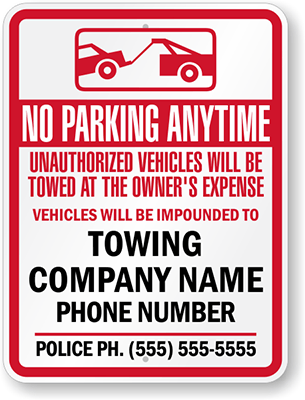
Alabama towing law has strict requirements on tow warning signs on private property to help protect vehicle owners’ rights. Property owners are responsible for proper sign installation and upkeep.
- Signs must be placed at all entrances and exits to the private property where towing is enforced.
- Lettering must be at least 2 inches tall and visible from a vehicle from a distance of 100 feet.
- Signage must be continuously maintained in a legible condition. Weathered or damaged signs must be promptly replaced.
- If proper signs are not posted, a non-consensual tow from private property may be considered trespassing.
- Property owners can be fined $50 per day by the Alabama Public Service Commission for improper or missing signage.
- Vehicle owners can sue for up to 3 times the towing and storage fees if trucks violate signage requirements.
- Signs must also include: the towing company name, phone number, storage lot address, and hours of operation.
- Signage must be continuously maintained in a legible condition. Weathered or damaged signs must be promptly replaced.
Recent and Proposed Changes & Controversies in Alabama Towing Laws
Alabama’s towing laws have been under the spotlight recently, with several proposed changes, local reforms, and public controversies driving debate across the state. Here’s what you need to know to stay updated.
| Issue | Recent Action or Debate |
|---|---|
| Decatur repossession notice | 30-minute police notification rule (June 2024) |
| Fee caps | Proposed statewide limits on towing/storage fees |
| Electronic notifications | Proposal to alert owners via text/email |
| College town towing practices | Local reviews after student complaints |
| Burned vehicle disputes | Calls for disaster-specific towing regulations |
| Auction transparency | Push for clearer notice to owners/lienholders |
🚗 Recent Changes in Alabama Towing Laws
- Decatur Police Repossession Rules (2024) → Effective June 1, 2024, tow companies in Decatur must notify police at least 30 minutes before repossessing a vehicle. This aims to prevent mistaken theft reports and improve public safety.
- Increased Lien Notice Requirements → Some counties have tightened rules on notifying lienholders when a vehicle is towed, shortening notification timelines from 30 to 15 days.
- Higher Insurance Minimums for Tow Operators → New state rules increased required insurance coverage to $300,000 for nonconsensual tows to better protect consumers.
⚖️ Proposed Changes Under Discussion
- Statewide Fee Cap Legislation → Lawmakers have floated bills to create uniform towing and storage fee limits across Alabama, reducing confusion between counties.
- Stronger Predatory Towing Protections → Advocacy groups are pushing for laws requiring:
- Clearer signage on private lots.
- Written notice before non-emergency tows.
- Easier dispute processes for consumers.
- Electronic Notification Systems → A proposal to require tow companies to electronically notify vehicle owners (via text or email) when a car is towed is gaining attention.
🔥 Controversies & Public Backlash
- Predatory Towing Complaints in College Towns → Cities like Auburn and Tuscaloosa have faced backlash over aggressive private lot towing near campuses, sparking student protests and local ordinance reviews.
- Disputes Over Burned Vehicle Towing → After severe storms and fires, some Alabama residents reported unfair towing and storage of burned or storm-damaged vehicles, leading to calls for clearer disaster-related towing rules.
- Lack of Transparency in Auctions → Some counties face criticism over insufficient notice and transparency when auctioning abandoned vehicles, with complaints from lienholders and vehicle owners.
Want to protect yourself from sudden changes? Follow our updates and stay ahead of Alabama’s towing laws.
Stay protected—download our free towing rights checklist 📥
Frequently Asked Questions About Alabama Towing Laws
References and Resources on Alabama Towing Laws
- Alabama Code Title 32 Chapter 6A: Vehicle Towing and Recovery
- Alabama Public Service Commission: Motor Carrier/Towing Compliance
- Alabama Attorney General Towing Information
- Tow Truck License Requirements in Alabama
Conclusion: Stay Informed on Alabama Towing Laws
Alabama towing laws provide a framework to protect drivers, property owners, and towing companies.
Key regulations, like Alabama private property towing laws, ensure proper signage and notification, while Alabama car towing laws mandate timely owner alerts within 24 hours.
Predatory towing laws Alabama safeguard against unfair practices, and Alabama towing and recovery laws on personal property help you reclaim belongings without excessive fees.
Recent updates, such as capped storage fees and photographic evidence requirements, further strengthen Alabama towing laws consumer rights.
Knowing your rights is crucial to avoid costly towing disputes. Whether dealing with Alabama trailer towing laws or Alabama tow truck laws, staying informed empowers you to challenge wrongful tows and recover vehicles efficiently. Don’t let a tow catch you off guard—understanding these laws saves time and money.
CTA: Don’t get caught off guard—know more about Alabama towing laws and consult our experts today!
